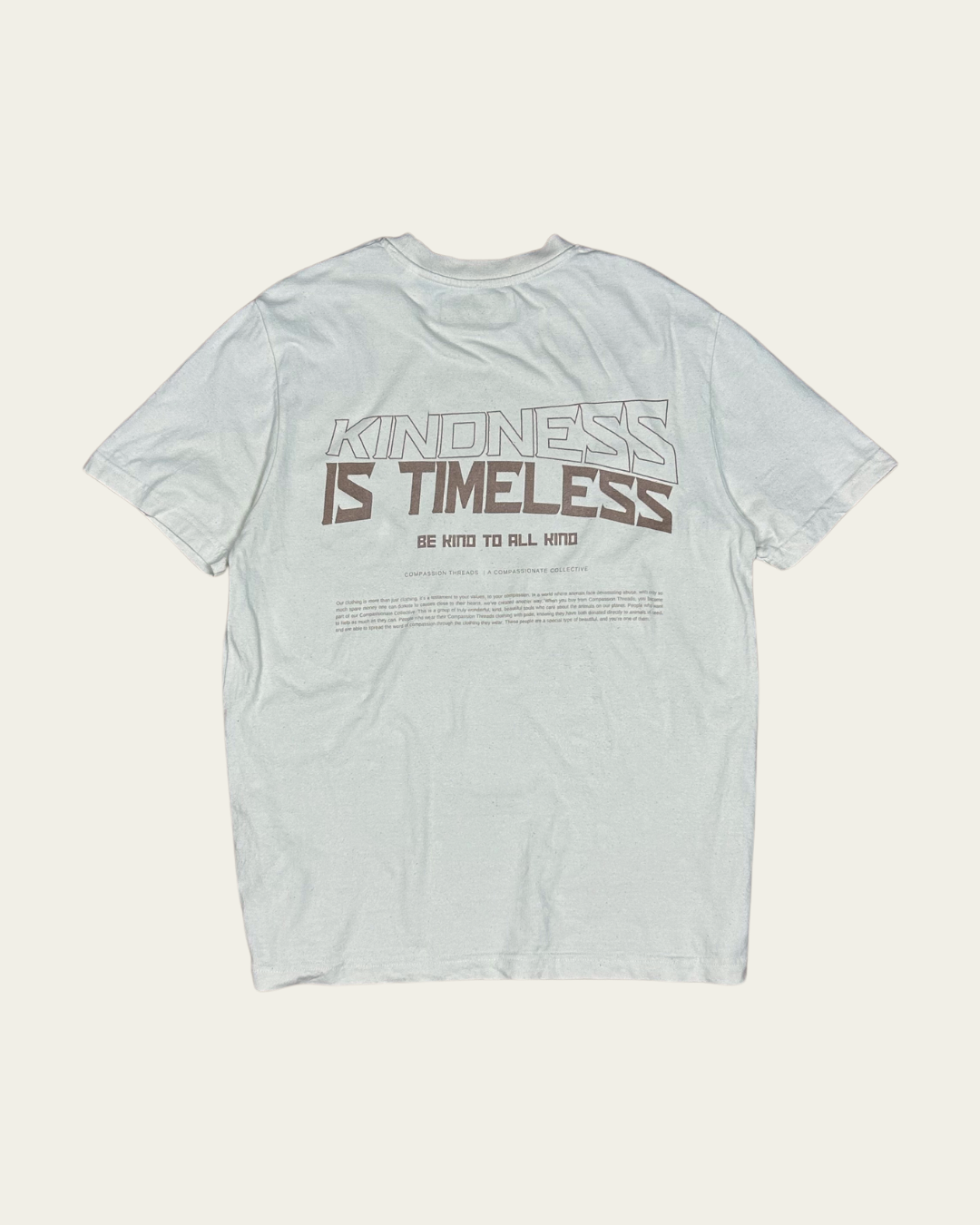
Sustainable Vegan Clothing Materials: A Complete Overview
Discover the eco-friendly and cruelty-free materials that are revolutionizing the fashion industry.
The Rise of Sustainable Vegan Clothing Materials
The fashion industry is undergoing a significant transformation, with a growing demand for sustainable and ethical fashion. One of the key aspects of this movement is the rise of sustainable vegan clothing materials. These materials are not only environmentally friendly, but they also align with the values of ethical veganism.
In the past, vegan clothing options were limited and often associated with a lack of style and luxury. However, thanks to advancements in technology and innovative manufacturing processes, sustainable vegan materials have become a viable and attractive option for fashion-forward individuals.
The rise of sustainable vegan clothing materials can be attributed to several factors. First and foremost, there is an increasing awareness about the environmental impact of the fashion industry. Traditional clothing materials, such as leather and fur, require the use of animal products and contribute to deforestation and pollution. As people become more conscious of these issues, they are actively seeking out alternatives that minimize harm to animals and the planet.
Moreover, the fashion industry has witnessed a shift in consumer preferences. Today's consumers are more informed and socially responsible, and they are demanding transparency and accountability from the brands they support. This has led to a rise in the popularity of vegan clothing brands that prioritize sustainability and ethical practices.
The rise of sustainable vegan clothing materials is an exciting development in the fashion industry. Not only does it offer a solution to the environmental and ethical concerns associated with traditional clothing materials, but it also presents an opportunity for fashion brands to differentiate themselves in the market and attract a growing customer base.
Benefits of Choosing Sustainable Vegan Materials
Choosing sustainable vegan materials for your clothing offers numerous benefits. First and foremost, it allows you to make a positive impact on the environment. Traditional clothing materials, such as leather and fur, require the use of animal products and contribute to deforestation, water pollution, and greenhouse gas emissions. By opting for sustainable vegan materials, you can reduce your carbon footprint and help mitigate the negative effects of the fashion industry on the planet.
In addition to being environmentally friendly, sustainable vegan materials are also cruelty-free. They do not involve the exploitation or harm of animals, aligning with the principles of ethical veganism. This means that you can enjoy fashionable and luxurious clothing without compromising your values.
Furthermore, sustainable vegan materials are often innovative and technologically advanced. Many brands are investing in research and development to create materials that are not only sustainable but also offer superior comfort, durability, and performance. This means that you can enjoy high-quality clothing that meets your needs and expectations.
By choosing sustainable vegan materials, you are not only making a statement about your personal values but also supporting brands that are committed to making a positive impact. By supporting these brands, you are contributing to the growth of the sustainable fashion industry and encouraging other brands to follow suit.
In conclusion, the benefits of choosing sustainable vegan materials for your clothing are manifold. From reducing your environmental footprint to supporting ethical practices and enjoying high-quality fashion, sustainable vegan materials offer a compelling alternative to traditional clothing materials.

Popular Eco-Friendly Fabric Options for Vegan Clothing
There are several popular eco-friendly fabric options for vegan clothing that are gaining popularity in the fashion industry. These materials offer a sustainable and cruelty-free alternative to traditional fabrics, without compromising on style or comfort.
One popular fabric option is organic cotton. Unlike conventional cotton, which is grown using large amounts of water, pesticides, and synthetic fertilizers, organic cotton is produced using environmentally friendly practices. It is grown without the use of harmful chemicals, making it better for the soil, water sources, and the health of farmers. At Compassion Threads, we use 100% organic cotton for all our clothing; helping the planet, while creating clothes that feel soft and luxurious on your skin!
Another eco-friendly fabric option is hemp. Hemp is a versatile and sustainable material that requires minimal water and no pesticides to grow. It is known for its durability and strength, making it an excellent choice for clothing that is built to last. Additionally, hemp has natural anti-bacterial and anti-microbial properties, making it a hygienic choice for clothing.
Lyocell, also known as Tencel, is another popular fabric option for vegan clothing. It is made from sustainably harvested wood pulp and manufactured using a closed-loop process that recycles and reuses water and solvents. Lyocell is known for its softness, breathability, and moisture-wicking properties, making it ideal for activewear and everyday clothing.
Piñatex is a unique and innovative fabric option made from pineapple leaf fibers. It is a byproduct of the pineapple industry and does not require any additional land, water, or pesticides to produce. Piñatex is a durable and versatile material that can be used in a wide range of clothing and accessory products.
These are just a few examples of the popular eco-friendly fabric options available for vegan clothing. Each material has its own unique properties and benefits, allowing you to choose the one that best suits your style and preferences.

Innovative Eco-Friendly Solutions in Sustainable Vegan Fashion
The fashion industry is constantly evolving, and innovative eco-friendly solutions are emerging in the field of sustainable vegan fashion. These solutions aim to address the environmental and ethical challenges associated with traditional fashion, while also offering stylish and luxurious options for consumers.
One innovative solution is the development of plant-based leather alternatives. Traditional leather production involves the use of animal skins, which contributes to deforestation, water pollution, and animal cruelty. However, several brands are now using innovative materials, such as mushroom leather and cactus leather, to create sustainable and cruelty-free alternatives. These materials have a similar look and feel to traditional leather, but without the negative environmental and ethical impacts.
Another innovative solution is the use of recycled materials. Many fashion brands are incorporating recycled fabrics, such as recycled polyester and nylon, into their collections. These materials are made from post-consumer waste, such as plastic bottles and fishing nets, and can be recycled again at the end of their life cycle. By utilizing recycled materials, brands are reducing the demand for virgin resources and minimizing waste.
In addition to materials, innovative manufacturing processes are also being developed to minimize the environmental footprint of clothing production. For example, some brands are using waterless dyeing techniques, which significantly reduce water usage and eliminate the discharge of harmful chemicals into water sources. Others are exploring 3D printing technology to create custom-fit clothing, reducing fabric waste and improving the overall fit and comfort of garments.
These innovative eco-friendly solutions are reshaping the fashion industry and paving the way for a more sustainable and ethical future. By supporting brands that embrace these solutions, you can contribute to positive change and be a part of the movement towards a more sustainable fashion industry.

Tips for Incorporating Sustainable Vegan Materials into Your Wardrobe
Embracing sustainable vegan materials in your wardrobe not only reflects your values but also elevates your fashion choices. Drawing inspiration from the enlightening insights of Professor Natascha Radclyffe-Thomas, shared during her recent talk in Belfast on sustainability and the significance of circular fashion, here are some invaluable tips to facilitate your transition:
1. Educate yourself: Learn about the different sustainable vegan materials available in the market. Familiarize yourself with their properties, benefits, and care instructions. This will help you make informed decisions when shopping for clothing.
2. Research brands: Look for fashion brands that prioritize sustainability and ethical practices. Check their websites and social media platforms to learn about their materials, manufacturing processes, and certifications. Supporting these brands will ensure that your clothing choices have a positive impact.
3. Start small: Transitioning to a sustainable vegan wardrobe doesn't have to happen overnight. Start by replacing one or two items in your wardrobe with sustainable vegan alternatives. This could be a pair of vegan leather shoes or a cruelty-free handbag. As you become more comfortable, you can gradually incorporate more sustainable pieces into your collection.
4. Take care of your clothing: Proper care and maintenance can significantly extend the lifespan of your clothing. Follow the care instructions provided by the brand to ensure that your garments stay in good condition. This will reduce the need for frequent replacements and minimize waste.
5. Consider secondhand and vintage options: Shopping secondhand is a sustainable and budget-friendly way to update your wardrobe. Look for vintage or pre-loved clothing made from sustainable materials. This not only reduces the demand for new clothing production but also adds a unique and stylish touch to your outfits.
By following these tips, you can gradually build a sustainable vegan wardrobe that reflects your personal style and values. Remember, every small step counts towards creating a more sustainable and ethical fashion industry.








